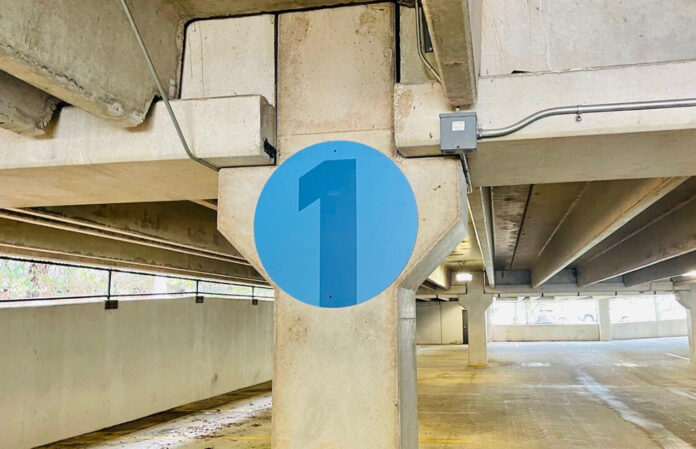Three hits and a miss. That is the high-level overview of nearly three years of work on changes to the Manual on Uniform Traffic Control Devices (MUTCD).
While the MUTCD does not have a broad impact on the on-premise sign industry, designers and fabricators who work on wayfinding signs are particularly impacted. (Want to learn more about wayfinding signs? The Sign Research Foundation has some great resources and insights.)
The coalition, which also included SEGD members and other key stakeholders in our industry, was able to positively impact three areas while losing out on one.
Just before the holidays, the latest version of the MUTCD was released publicly. Clocking in at 1,161 pages long, I wanted to highlight the issues that the International Sign Association (ISA) worked on.
Upgrading nonconforming signs: In the 2021 draft version, ISA was very concerned about new language that suggested that nonconforming existing signs—owned and maintained by state Departments of Transportation—needed to be upgraded before installing a new community wayfinding system.
Now the MUTCD guidance talks only about the compliance of existing “guide signs,” as the MUTCD calls them. This is a major accomplishment because the draft language would have prevented any new community wayfinding systems if the local DOT didn’t update their regulatory and warning signs at the same time.
Using letter styles other than Standard Alphabets: The International Sign Association felt that using the Standard Alphabets fonts results in impractically large sign panels and asked for wording that allows designers to use an alternative.
In the final version, the language was rewritten to allow designers to use highly effective fonts other than the Standard Alphabets.
Parking Directional Signs: Designers in our industry often are directed to use specific signs as parking directionals (white “P” in blue circle, white “P” in green circle, green “P” in white rectangle, etc.), so ISA asked that designers be allowed to use parking sign colors that coordinate with the overall graphics of a community wayfinding system.
While the Federal Highway Administration (FHWA) did not go that far with our request, they did delete the language that said “Parking Area” should be only green on a retroreflective white background.
While these areas are wins for more effective wayfinding designs, ISA and our industry didn’t win them all.
We suggested the updated MUTCD allow for greater flexibility in designing and creating the shape of community wayfinding signs.
In the 2009 edition—the last approved version—wayfinding signs were required to be rectangular. This was a guidance, which is a strong recommendation.
The updated version changes the guidance to a “standard,” which makes it a requirement. Though ISA urged that it remain a guidance, the requirement was included in the final version.

Everyone in our industry knows that the shape of a sign can convey as much as the words on it. So losing that point was difficult to take.
However enacting any sort of change in federal regulations is monumental, and ISA is pleased with the three areas of win.
Although ISA and the sign and graphics industry didn’t get everything we asked for, understand that it was a heavy lift for the organizations and volunteers who worked to craft detailed arguments.
The International Sign Association brought together nine organizations and experts and spoke with one voice, and the FHWA heard us loud and clear.
It is likely that the FHWA will update the MUTCD again in four years, and ISA will be there again to make sure that our industry’s concerns are heard and addressed.
David Hickey is vice-president of Government Affairs with the International Sign Association. He can be reached at [email protected].











